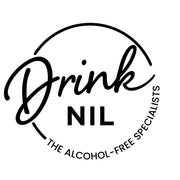The choice of whether to consume alcoholic drinks or not is, sadly, greatly stigmatising in South Africa. There’s a generation of people who are asked ‘why not?’ when they decline a drink, with the connotation that they’re not ‘joining in’ or there’s ‘something wrong’ with them.
It’s painted as very ‘un-South African’ to not enjoy a drink, eat braaied meat, watch sport or make jokes about Eskom. In the past year, there’s been a positive shift being led by the younger generation, whose focus on health and wellbeing (specifically following the pandemic) has seen the adoption of no-alcohol or low-alcohol (‘NoLo’) beverages as the norm.
Fewer young people today drink alcohol – or drink alcohol in excess – marking an entirely necessary and ongoing transition to more healthy, natural, organic, non-GMO ways of eating, drinking and living, in general.
Fiona Hilton from alcohol free e-tailer Drink Nil says, “Whether your reasons are religious, health-related, in the interests of maintaining a clear head – or simply because you want to – there’s no reason that not wanting to consume alcohol should see you stigmatised.
“The availability of a massive array of non-alcoholic drinks means you don’t have to choose between being a ‘drinker’ or ‘abstainer’ – it’s an entirely new way to enjoy yourself.”
NoLo is an entirely new category of drinks, rather than a substitute for alcoholic ones – an exciting option, not a trade-off. Splitting that group into no alcohol and low-alcohol – opens the variety up even further.
In South Africa, plenty of non-alcoholic wines and bubbles, gins, spirits, beer, ready-to-drink options like ‘mocktails’ and interesting sparkling tonics, sodas and seltzers are available through high street stores and e-tailers like Drink Nil.
A drink can be called non-alcoholic or de-alcoholised if it contains 0.5% or less alcohol by volume (ABV). A drink may be labelled ‘alcohol-free’ if it contains 0.05% or less alcohol by volume (ABV).
If a beverage contains alcohol, the label must reference its ABV, even in trace amounts. A drink that is 0.0% ABV may contain less than one 20th of a percent of alcohol – the same amount found in a very ripe banana or pear. By comparison, alcoholic beers generally start around 4% ABV, wines at 12% and spirits 40% and up.
The vast number of new products entering the market from traditional alcohol brands and new producers has developed non-alcoholic drinks as a quality and enjoyable option to the array of choices people are able to consume, for those who choose not to drink alcohol for their own reasons.
“These drinks have come a long way in a very short space of time – another industry accelerated by the pandemic and the shift towards a healthier lifestyle – led by variety, quality and innovation,” concludes Hilton.
--------------------
Article first appeared in Retail Brief Africa on 8 June 2022: https://retailbriefafrica.co.za/nolo-drinks-category-on-the-rise-as-younger-generations-opt-for-health-and-abstinence-from-alcohol/

